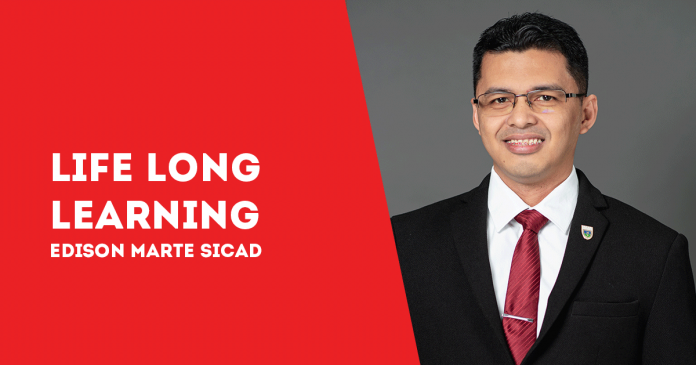
BY EDISON MARTE SICAD
“Education becomes indoctrination when ideas are only transferred and repeated either out of fear of authority or out of laziness to think critically.”
TO CLARIFY at the outset, indoctrination is not wrong per se. There are beliefs that require respect for the mere fact that it is not up for debate; some beliefs have cultural and religious significance, personal in nature, and sacred in interpretations. Moreover, beliefs do not really clash; it is us, the believers, who need more maturity in practicing our beliefs and in handling criticisms.
In a school setting, this kind of maturity is called Consideration:
“Class, be considerate of others: clean the table after using it for eating; keep quiet especially if there is a class at the adjacent room; ask permission when borrowing and return it afterwards.”
***
Should students be allowed to contradict their teachers?
For some years now, I noticed one thing about class discussions: the students have difficulty expressing their thoughts.
Me: “Mr. dela Cruz, please read the definition of Ethnocentrism.”
(The student reads.)
Me: “Now, Mr. dela Cruz, in your own words how can you relate Ethnocentrism with Colonial Mentality? Please give specific examples based on our previous discussions and reading assignments.”
Most students will not be able to answer this. They are very good in reading and memorizing but the moment you ask them to connect some concepts and thus teach them the skill of creating new ideas, they fell silent.
It would seem that there are those who are only comfortable in repeating what the textbooks or the teachers say. Is this education? Is the student really learning?
***
When my student says that he is an atheist:
1. I noticed that it is often said with a rebellious tone; he would want to be alone; and use it as an anti-learning philosophy.
2. It is said with a heavy heart. I seldom see a student smile with gusto after declaring that he does not believe in God.
3. And I learned that I cannot persuade him otherwise. Not everything can be argued from the mind. Sometimes it is persuasion from the heart. Or silent prayer.
For me, Faith is not an instant acquisition of a solid set of beliefs assuring a person of an unwavering, indomitable life of serenity. It needed to grow. It needed to be tested. Like a (mustard) seed, it requires nurturing. And as the saying goes, strong roots are caused by strong winds. So, hold on.
***
For the past 15 years, I was teaching in a private school. As part of the school service, you can chat with a priest or chaplain or talk to a mentor. These people see professional men not only because of their work but also because of their spiritual life.
I have to admit, there is such a thing as spiritual needs. We have this experience or awareness of inner peace—or chaos. A need to be alone, and to reflect. To make sense of the mess we are in and pick ourselves up and go to work. And there we face our students, almost at the mercy of what we can impart to them. For in teaching, we are not just dealing in the learning of the subjects; we are also giving our students a reason of why they have to go to school.
***
I would argue—subject to your criticism—that a student’s atheistic belief is not really a crisis of faith; but is just a residual outcome of bad habits and too much online activities. I would call this the crisis of abundance. The student ends up believing in nothing because there are so many beliefs and ideas to choose and follow from on the internet.
In relation to this, this is where parental modeling happens. A good father or male figure (a brother, an uncle, a grandfather, or teacher) has a moral impact in the growth of a son. The same with a girl: a strong mother or female figure is important for a daughter to make sense of relationships.
For relationships nowadays are more transactional, sexual, and viral (pun intended). The word “commitment” now has an expiration date, conditional, and sometimes very subjective or one-sided.
I still believe in the importance of the family; with the mother and the father providing the appropriate guidance for the children to become civic-minded and conscientious.
***
The question then is, how do you convince students who are inclined to atheistic beliefs? Or question needlessly authoritative ideas?
My mentor would advise, Friendship and Prayer. For in friendship, the conversation is no longer a tug-of-war as to who has a stronger argument. And in prayer, we humbly offer to God the situation and trust in His ways.
Suggested book: Making Choices: practical wisdom for everyday moral decisions by Peter Kreeft/PN







